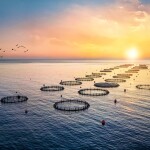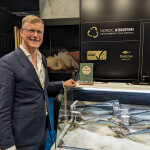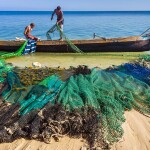West Lafayette, Indiana, U.S.A.-based Purdue University has received a five-year, USD 10 million (EUR 9.4 million) grant to develop a zero-waste indoor aquaponics system to grow tilapia.
The grant from the U.S. Department of Agriculture will fund the development of a pilot-scale integrated aquaponics system to grow tilapia and lettuce, and to convert fish waste into biogas and high-value bioproducts. The grant will also cover stakeholder education and outreach components to promote tilapia consumption and other “blue foods” in the U.S. Midwest. The Midwest region suffers high obesity rates, operates the fewest aquaculture farms, and consumes the least amount of seafood, according to Purdue University Professor Jen-Yi Huang.
“[We] want to educate consumers on the benefit of blue foods so that they can diversify their dietary pattern to include more blue foods and ultimately improve health,” said Huang, who is also the project director.
Purdue’s aquaponics system will direct wastewater into algal bioreactors to generate biogas fuel, allowing the system to operate independently of the power grid.
"That energy can be sent back to the aquaponics system to offset the energy requirement of the indoor facility operation, at least partially,” Huang said.
According to Huang, the system also includes a biorefinery subsystem to convert algae and fish byproducts into high-value nutraceuticals such as bioactive peptide and phenolic compounds. The biorefinery can turn the algae into fish feed for the aquaponics operation as well. Purdue Agricultural and Biological Engineering Professor Jiqin Ni is developing the anaerobic digestor for the system.
“Algae cultivation and anaerobic digestion are two of the most-important components in Purdue’s integrated aquaponic system,” Ni said. “We use the algae to treat the wastewater and also anaerobic digestion to treat the algal biomass and other waste streams like fish processing wastes.”
The project will also promote knowledge-sharing to encourage the proliferation of aquaponics development in the region.
“Aquaponics production hasn’t been widely adopted, especially in the Midwest,” Huang said. “By integration with the biorefinery, we can have additional revenues for aquaponics farmers so that they can improve their economic viability. We will develop multidimensional sustainability metrics for system assessment and management to make sure that this kind of integration is technically feasible, economically viable, and environmentally friendly.”
Photo courtesy of Purdue University







